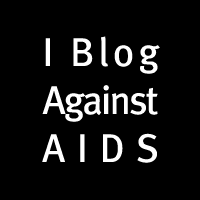Morality and AIDS
It has been far too long since I last posted... somehow every day life never seems to compare to the urgency and immediacy of travelling. I always find I am thinking much more deeply about things and write far more in a new environment than I do at 'home' - wherever that may be at the time.
I just had an email asking me if I didn't think 'moral issues' were at the root of the AIDS epidemic in Africa. No - I don't. I think the root cause of AIDS is a particularly clever 'germ' that has learned to spread through sex (or human reproduction) something we humans are highly embarrassed about and something we will continue to do, furtively and otherwise, until we are extinct. I'm not a biologist and can't document the way the virus has evolved and spreads biologically, but would recommend reading Guns, Germs and Steel to see how germs develop and AIDS in the 21st Century for more on the biological transmission of the virus.
I can tell you that women are much more vulnerable to infection (both biologically and socio-economically) and that poverty is a major factor in the spread of HIV/AIDS. Conditions of poverty lead to poor nutrition, higher exposure to disease and suppressed immune responses. A compromised immune system is much less able to resist the attack of the HIV virus. Poverty also decreases options. Faced with the choice between starvation and possible illness later, most people concentrate on short-term survival. This pushes millions of women around the world into sex work, and millions more into dependent relationships.
The reason why Africa, as opposed to say the US, is the most heavily affected region is due to many, many reasons, but not 'morals.' Probably the two most important are the level of extreme poverty (in sub-Saharan Africa, 83% of children are severely deprived of at least one basic human need: food, safe drinking water, sanitation, health care, education, shelter) and that health care is minimal and treatment rare. Sub-Saharan Africa has the highest percentage of untreated STI's: it has been proven that untreated STI's increase transmission risk. HIV is far more likely to be transmitted just after infection and in the final stages of the disease (when viral loads are high), treatment reduces viral loads and thereby decreases new infections. Treatment also acts as a deterrant by reducing stigma and encouraging testing; those who have an incentive to protect themselves if HIV-negative and the knowledge to protect others if HIV-positive.
"As so many of our patients have noted, what is the motivation for learning one’s serostatus [HIV status] when there is no possibility of being treated for opportunistic infections or of access to prevention of mother-to-child transmission during pregnancy, much less of being treated with antiretrovirals when needed?"It is noteworthy that the most common AIDS-related assistance to heavily burdened countries has consisted of education about the disease and condom distribution to prevent HIV transmission. Many of those at greatest risk know that HIV is a sexually transmitted disease and that condoms can prevent transmission.
(Castro and Farmer (2005) “Understanding and Addressing AIDS-Related Stigma: from Anthropological Theory to Clinical Practice in Haiti” American Journal of Public Health Vol. 95, No.1 pp.53-59)
Their risk stems less from ignorance and more from the precarious situations in which hundreds of millions live; gender inequality adds a special burden, and is the main reason that, globally, HIV incidence is now higher among women than among men.
(Farmer et al., (2001) “Community Based Approaches to HIV Treatment in Resource-Poor Settings” The Lancet Vol. 358 pp.404-409)
The prevention strategies currently used will not stop HIV incidence or AIDS deaths among the poorest populations, especially among poor women. It is time to focus attention on treating the millions already affected, both as a moral necessity and a wise investment in the future. Treatment, both antiretroviral and for opportunistic infections, must become integrated in the fight to combat HIV/AIDS in all countries and in all communities.








No comments:
Post a Comment